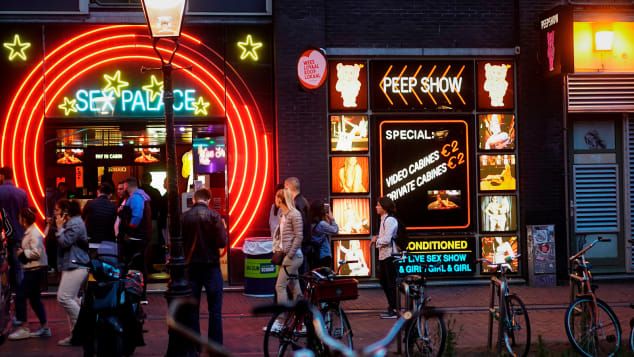How Amsterdam is trying to solve its tourism problem
Amsterdam has gained an international reputation that has turned it into a major tourism hotspot.

A few minutes every morning is all you need.
Stay up to date on the world's Headlines and Human Stories. It's fun, it's factual, it's fluff-free.
Amsterdam has gained an international reputation that has turned it into a major tourism hotspot. The city has a lot to offer – quaint buildings, iconic canals, clusters of tulips, fun food and museums like the Van Gogh Museum and the Anne Frank House. While plenty of people go to this Dutch city to enjoy these pieces of culture, plenty more come for … other things. Like drugs and hookers.
Apart from exploring these things, some tourists take advantage of the fact that Amsterdam allows recreational marijuana and hallucinogenic mushroom use. And it also has its Red Light District, where prostitution is legal, and the nightlife is more lively. You can imagine how rowdy tourists act when they have access to these things, and all of this is starting to give Amsterdam a bad look.
"Some businesses misuse Amsterdam's image to sell it as a place of 'unlimited possibilities,'" said Deputy Mayor Sofyan Mbarki in a statement. "As a result, some groups of visitors think of it as a city where anything goes. This kind of tourism, as well as offerings specifically targeting these groups, is not considered desirable by the Municipal Executive."
Recently Amsterdam made some new proposals to limit undesirable tourism. A few months ago, Mayor Femke Halsema started pushing for a temporary ban on non-residents in coffee shops, which is where weed is sold. So, only Dutch national residents would have direct access to the drug. The policy hasn't come into effect, but it's just one of the ways that the government has been testing the waters of controlling hooligan travelers.
Now, some real changes are going to happen in Amsterdam. The city is putting a ban on smoking weed in the Red Light District. Halsema explained, "This should reduce the nuisance caused by drug use in public spaces, particularly by tourists." Misbehaved visitors often end up bothering or harassing the sex workers in that section of the city, and residents there also find them disturbing. Another new rule was also put in place, making the prostitution businesses and bars/cafes close earlier than before.
The new policies will go into effect this May.




Comments ()